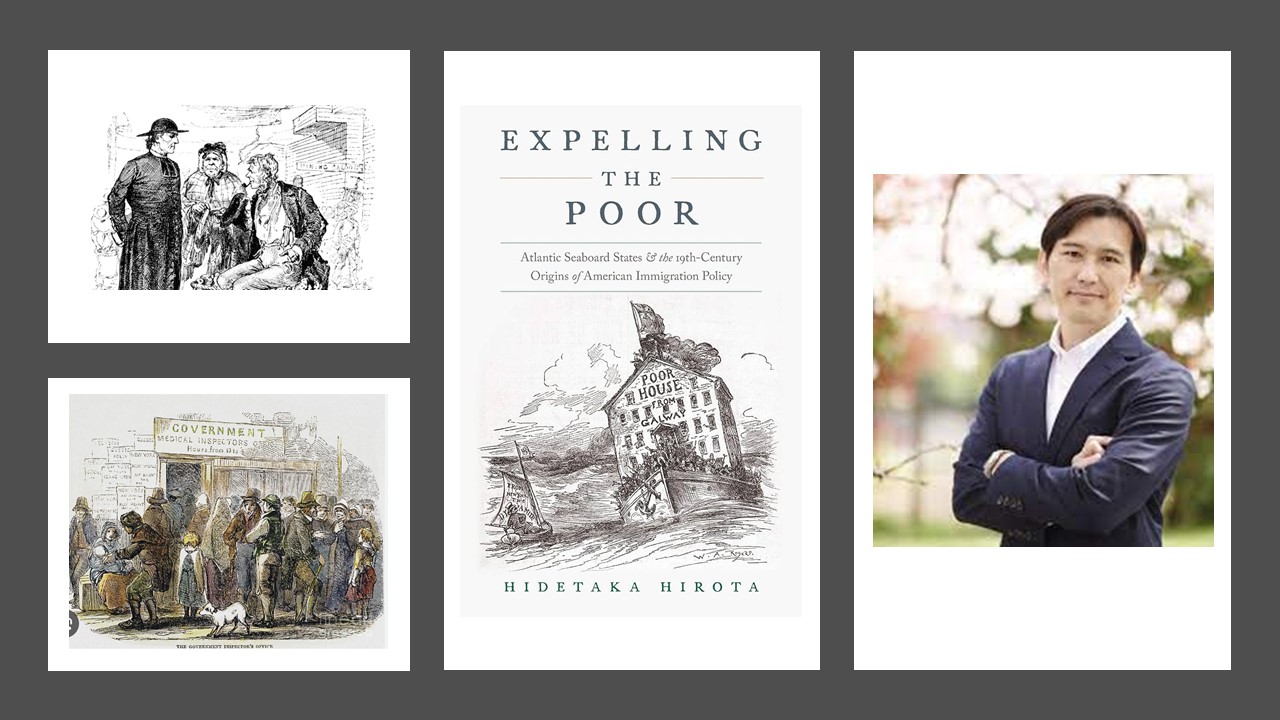Faced with the influx of impoverished Irish immigrants over the first half of the nineteenth century, nativists in New York and Massachusetts built upon colonial poor laws to develop policies for prohibiting the landing of destitute foreigners and deporting those already resident to Europe, Canada, or other American states. In the first sustained study of immigration control conducted by states prior to the introduction of federal immigration law in the late nineteenth century, Hirota argues that the origins of American immigration control were in cultural prejudice against the Irish and, more essentially, economic concerns about their poverty, rather than anti-Asian racism. Challenging the long-standing idea that immigration was unregulated prior to passage of federal immigration legislation, he connects nativist politics of the mid 19th century to US deportation policy and explores immigrants' post-deportation experiences in Europe.
Historian Hidetaka Hirota received his PhD in History from Boston College. He is currently Associate Professor at Berkeley College, teaching the social and legal history of the United States, with a special focus on immigration. Before joining UC Berkeley, he served as a Mellon Research Fellow in the Society of Fellows in the Humanities at Columbia University and taught at the City University of New York-City College and Sophia University in Japan. Expelling the Poor received the First Book Award from the Immigration and Ethnic History Society, the Lois P. Rudnick Award from the New England American Studies Association, and the Donald Murphy Prize from the American Conference for Irish Studies, as well as Special Commendation for the Peter J. Gomez Prize from the Massachusetts Historical Society and Honorable Mention for the Peggy O’Brien Book Prize from the Irish Association for American Studies.
